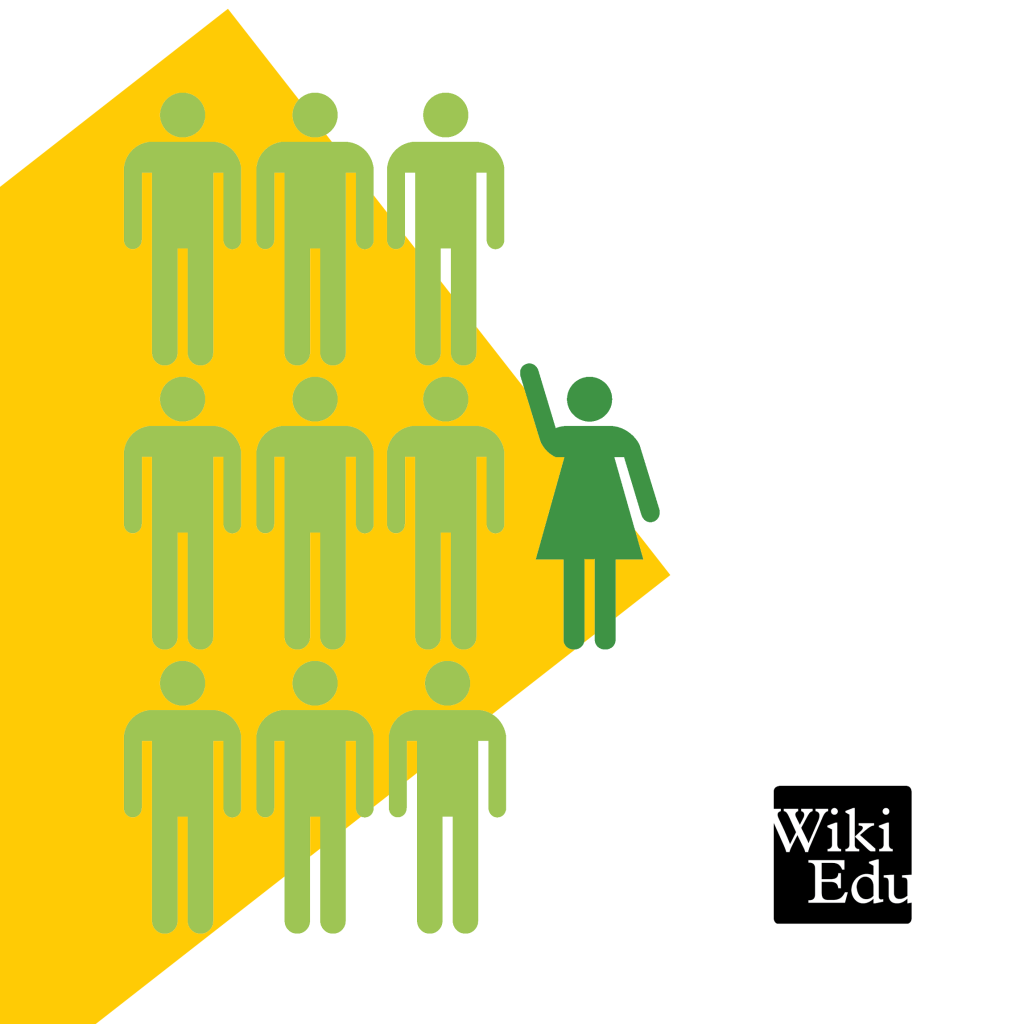Around 9 out of 10 of the editors on Wikipedia are male. What this means is that articles are shaped by one voice, and missing the diversity of content that different perspectives bring.
Wikipedia articles on women are more likely to be missing than Wikipedia articles on men (compared to other encyclopedias). It’s natural: When all content is written by volunteers, and your volunteer base is almost all one gender, the topics they write on will be those they’re interested in. On a large scale, this means things like military history, video games, and pop culture topics are well developed on Wikipedia, while arts, languages, and social science coverage often lags behind, creating content gaps.
We’re trying to change that, by working with university student editors to close content gaps on Wikipedia.
Here’s how it works. Across the U.S. and Canada, instructors are embracing Wikipedia assignments, giving students new tools for writing and learning their course material, often about topics not well covered or not even available on Wikipedia. We support instructors who choose to assign their students to contribute content to Wikipedia, complementing or replacing traditional student essays and encouraging students to contribute their knowledge to new or existing Wikipedia articles. These assignments strengthen student writing and critical thinking just as a traditional essay would, such as researching and evaluating sources and outlining that research into a logical arrangement. But with Wikipedia, students get the extra exhilarating jolt of knowing their scholarship will be read by the public, sharpening a sense of responsibility and critical thinking in their writing. The biggest difference, however, is that their work lives on as a resource for others. They can see that their scholarship is making a difference in the world.
Just as these Wikipedia assignments help students grow, students and instructors are also helping Wikipedia grow by filling those content gaps. These assignments improve the representation of women’s issues on Wikipedia and bring a diversity of perspectives to the editing community. Content gaps — the spaces where articles, topics, and perspectives are just too narrow — are often the best places for students to start editing.
More content from and about women is on Wikipedia now because of student engagement through our program. Some articles on Wikipedia that had been shockingly absent or incomplete for years — such as birth control, gender inequality, maternity leave, feminism, pregnancy risks in developing countries, refugee status of women, sex work, and the women’s role in the Arab Spring — are now thriving thanks to students and instructors in Wiki Ed’s program taking them on.
These pages were viewed more than 350,000 times since students created them, creating more information and more perspectives on Wikipedia, providing a more accurate reflection of the world for everyone who uses it.
More than 60% of our student editors are women, and in areas where we have targeted partnerships, that number is even higher. Surveys from the American Sociological Association Wikipedia Initiative, in which ASA encourages all sociology professors to participate in our program, showed that 70% of student editors participating in that initiative were women. That’s more women with experience editing Wikipedia, and more content contributed by women. In the end, that’s a stronger Wikipedia for everyone.
We’re proud to be attending the National Women’s Studies Association conference this week in Puerto Rico, where we hope to bring more awareness of this problem to the very people who we believe can have the greatest impact on bringing more women’s related content to Wikipedia.
Interested in helping us close the gender gap? If you’re a university instructor, you can make a real difference in how your students learn and how women’s subjects are represented on Wikipedia by participating in our program. Wiki Ed offers free training, guidance, and resources to help design a course that meets your goals while helping Wikipedia grow. To find out more, contact us by email at contact wikiedu.org.
wikiedu.org.

